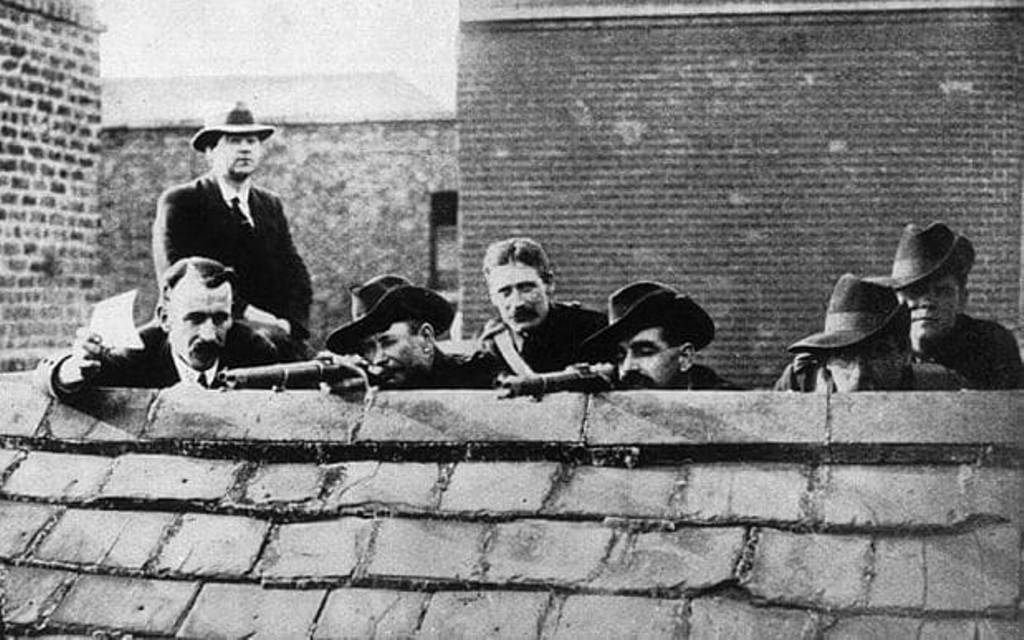The story of a tragic uprising by a group of Irish rebels on Easter Monday in 1916 is memorably dramatized through cultural touch-points in Crowded Kitchen Players raw and engaging "The Rising: The Irish Rebellion of 1916 in Song and Verse" through March 27 at the Ice House in Bethlehem.
Written and directed by Ara Barlieb, the story of "The Rising" is skillfully told by the small cast through newspaper articles, poetry, songs, speeches, proclamations, letters from the condemned rebels to their loved ones, and a "The New York Times" interview with Moira Regan, who was in the Dublin General Post Office during the Rising and helped run messages for the rebel forces.
Anchoring the show is Joey Mutis III of the band The Electric Farm, who performs traditional songs written about the uprising throughout the show. Songs including "Irelands Rise," "Banna Strand," "'The Row in the Town," "Tri-coloured Ribbon," "The Parting Glass" and "The Foggy Dew" are interspersed through the story giving them a deeper meaning.. Mutis plaintive voice lends a haunting quality to the traditional music on which he accompanies himself on guitar, as well as occasionally singing a cappella to additional effect.
Barlieb also has effectively woven poems by Irish poet Williams Butler Yeats about the uprising through the story.
Trish Cipoletti is passionate and strong-willed as Moira Regan, the young woman who witnesses some of the fighting first hand. Bruce Brown adeptly plays the reporter conducting the interview.
As doomed rebellion leader Padraig Pearse, Dan Ferry conveys an unflinching sense of purpose. Ferry is heartbreaking when he narrates Pearses letters to his mother and brother, but he never loses the rebel leaders unshakable belief in the inevitability of the freedom of Ireland.
Michael Sheridan portrays an unyielding sense of strength as rebel leader "The ORahilly," as well as switching to portray all other male characters.
The rest of the cast - Pamela McLean Wallace, Carla Hadley, Sharon Ferry, Paula Klein, and Colleen Popper “ constantly change hats as they portray witnesses on the streets of Dublin as well as various other women involved in the uprising.
Particularly illuminating is when members of the cast portray British citizens reading from the Manchester Guardian newspaper, and the condescending tone of the actual editorials says a lot about the attitude of the British toward the Irish.
Although the uprising had a somber ending, Ferrys Pearse gives it a positive spin since he considers the uprising successful as it forced the British to take the Irish people seriously. His words foretell the rising of the national identity that led to the eventual creation of the Irish Free State.
The action on stage is enhanced by a screen that shows period photos, artwork and newspaper articles that add to the richness of the story.
The simple set is highlighted by green, white and orange lights representing the Irish flag.
Barlieb has done an admirable job taking a historical event and bringing it to dramatic life through music, poetry and narrative in "The Rising."
Performances are 8 p.m. March 25, 26 and 2 p.m. March 20, 27. at The Charles A. Brown IceHouse, 56 River St., Bethlehem.
The show is 75 minutes long with no intermission. Tickets are $15. For information, call 610-704-6974, or go to www.ckplayers.com.
